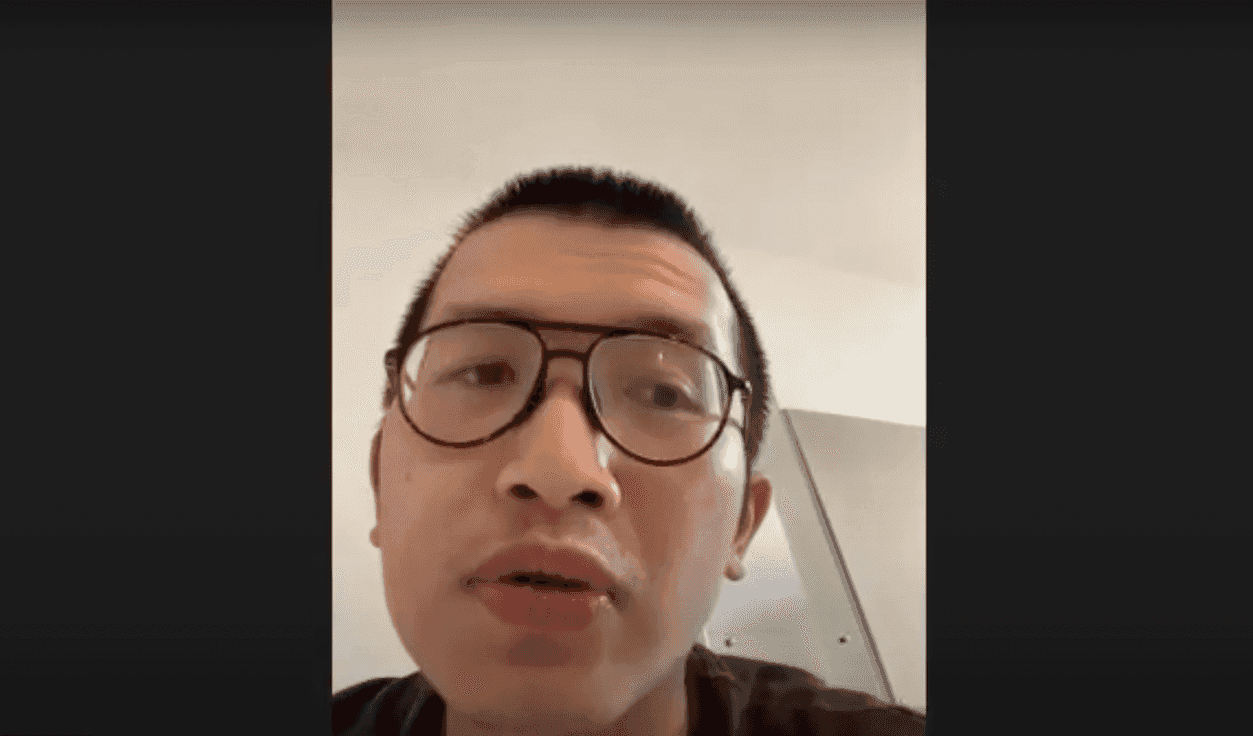A conversation with Charles Yeo, Singapore's latest dissident-in-exile
Slapped with a number of charges, the thirty-something lawyer fears that he will not receive a fair trial in the city-state.
Just In
A Singapore rights lawyer who recently sought political asylum in the UK says he will continue exposing what he describes as the wrongdoings of the authorities, as part of a long history of dissidents choosing to live in exile in their fight against the PAP-led government.
Charles Yeo, who represented death row prisoners and courted controversy over his social media posts on Christians and homophobia, is wanted by the authorities in the city-state for breaching the conditions of the court approval for his overseas travel.
But the 30-something says he decided to leave Singapore as he feared he would not receive a fair trial if he stayed, adding that the charges against him were politically motivated.
In January, Yeo, the former chairman of Singapore's Reform Party, was charged with harrassing police officers and hurting the feelings of Christians after posting several statements on his social media account.
He is also being investigated for criminal breach of trust (CBT) and forgery in the wake of complaints lodged against Whitefield Law Corporation, the law firm where he was once a partner.
Last month, he was released on bail of S$10,000 for business-related travel to Vietnam from July 27 to 30. He was supposed to surrender his passport upon his return on Aug 1, but decided that he would not return to the city-state.
"This is all total rubbish," Yeo told MalaysiaNow in an interview from the UK. "I have been a Singapore citizen for 30 years and a lawyer for five years but no complaint was ever filed against me.
"After I stood for election, suddenly there were so many complaints against me," he said, describing the accusations against him as "ridiculous" and a consequence of his frequent criticism of the Singapore government.
This includes his opposition to Singapore's death penalty, and his work to defend death row prisoners.
Yeo dismissed the claim that he had insulted Christianity, saying he had only gone against those whom he labelled as "false Christians".
"They said that because I spoke out against homophobia in Singapore, I wounded the religious feelings of Christians," he said.
"But this is all nonsense because if you read my social media, I myself identify as a Christian.
"Actually, Christianity is about caring for the poor and loving the underprivileged."
The three charges of hurting religious feelings form only half of the total number of charges and investigations against him.
There are currently "five to six matters" in which he is "facing state prosecution", including charges of CBT and forgery involving a total sum of S$100,000.
"This one can go up to 20 years in prison," he added.
Yeo is the latest in a long history of critics of the PAP government fleeing Singapore due to prosecution under various laws aimed at silencing them.
Under the late strongman Lee Kuan Yew, the father of current Singapore Prime Minister Lee Hsien Leong, activists and opposition leaders were frequently sued to the extent of bankruptcy and accused of being involved in communist conspiracy.
These include prominent opposition activists such as JB Jeyaretnam, Chee Soon Juan and Chia Thye Poh.
Yeo maintains that he is a political target due in part to his links with prominent rights lawyer M Ravi, who has also been vocal in the campaign to abolish the death penalty.
Yeo worked alongside Ravi to defend Malaysian death row prisoner Nagaenthran K Dharmalingam, whose execution in April sparked an international outcry and a deepening scrutiny of Singapore's use of the death sentence.
Nagaenthran, who was hanged despite a diagnosis of limited mental capability, had been convicted of smuggling a small amount of heroin into the city-state.
His execution coincided with what has been described as an atmosphere of fear among lawyers in the republic of representing death row prisoners due to concerns of reprisal by the attorney-general.
"The state wants to stop death row inmates from having legal representation," Yeo said.
"That is why they come and put pressure on all of us."
Singapore has carried out 10 executions in just four months, a record of sorts matched only by the recent executions of dissidents by the Myanmar junta.
The government has scoffed at growing international pressure, insisting that its death penalty is a deterrent for drug-related crimes even as neighbouring Malaysia moved to abolish its mandatory death penalty.
Yeo said he was not for the total abolition of the death penalty, although he believes that the sentence is unfairly meted out due to elements of discrimination.
"In Singapore, many people who are sentenced to death are Malays and Indians," said Yeo, who recently represented two intellectually disabled men convicted of drug trafficking, Singaporean Roslan Bakar and Malaysian Pausi Jefridin, whose executions were halted through a presidential decree.
"It is used by the state to keep the minorities in fear and to make them very afraid," he added.
"Those who commit a crime out of desperation – these people should not be sentenced to death."
On what lies ahead after his farewell to Singapore, Yeo said his main focus right now was his application for political asylum in the UK.
"But I will continue writing to expose the Singapore state for its hypocrisy and facist ideology," he said.
"I will continue to help and assist my party and lend my resources whenever I can to denounce the PAP."
Subscribe to our newsletter
To be updated with all the latest news and analyses daily.
